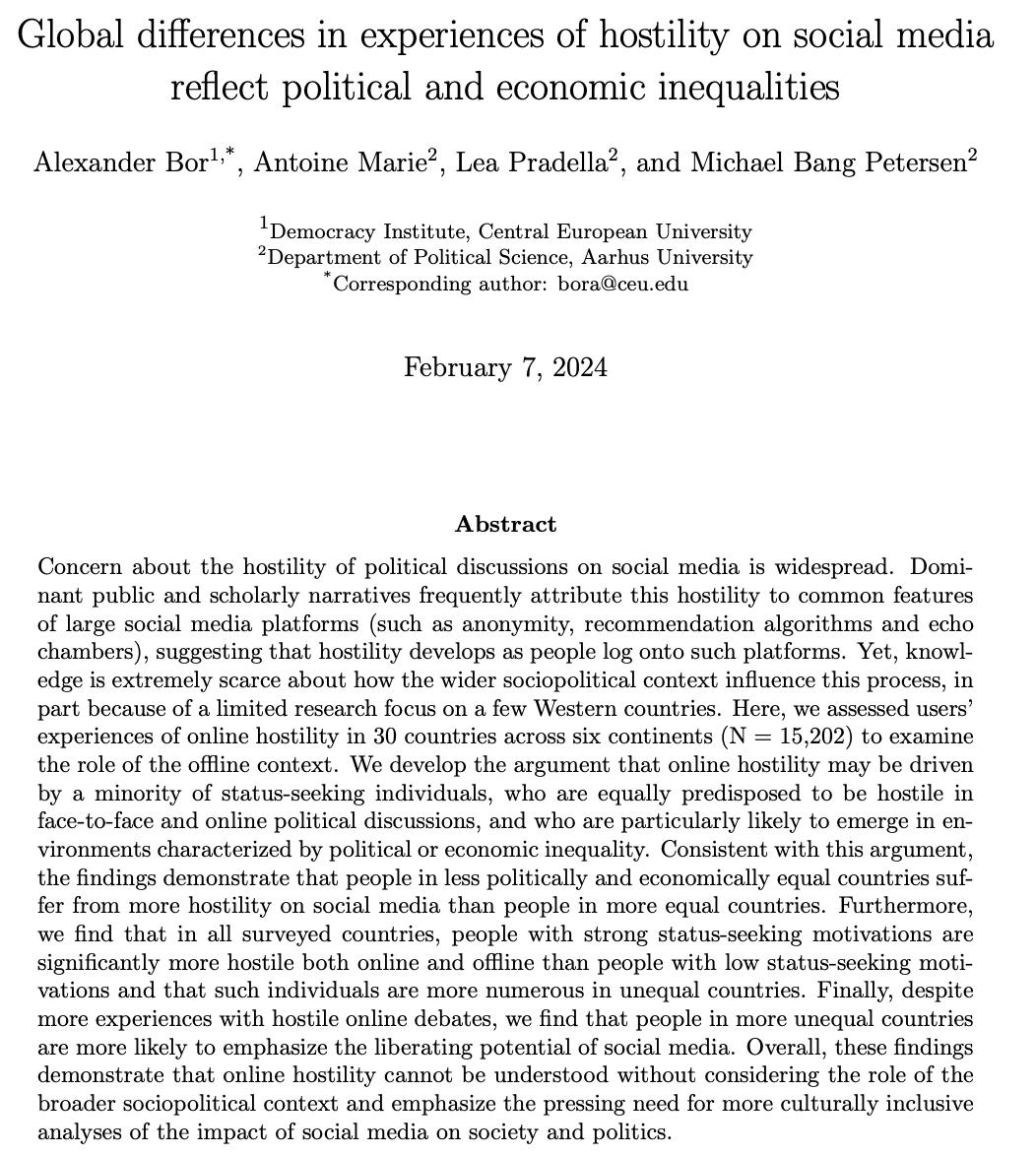Many restrictions now target the unvaxxed. Beyond public health arguments, a behavioral logic is increasingly used ("we need to pressure them!").
But be warned: This logic comes with great costs.
A 🧵 on almost 2 years of research on the societal impact of the pandemic. (1/10)
But be warned: This logic comes with great costs.
A 🧵 on almost 2 years of research on the societal impact of the pandemic. (1/10)
A pandemic is an excessively severe crisis. Beyond the health consequences, one of the main causalities is trust in the political system. We have tracked government support across countries. And it drops as the crisis unfolds: doi.org/10.1080/014023…. (2/10) 

Our research shows that this decreasing trust is driven by feelings of fatigue, which again is driven by restrictions and the time that passes as the pandemic drags on and on and on: psyarxiv.com/y6wm4/. (3/10) 

This fatigue is a facilitator of true radicalization: journals.sagepub.com/doi/full/10.11…. The psychological burden fuels hatred towards the system & support for political violence. Pandemic-specific terrorist plots have aldready been identified (apnews.com/article/europe…). (4/10) 

Our research shows that those who are unvaccinated are those that are most likely to feel fatigued and those who in general trust the authorities the least: bmjopen.bmj.com/content/11/6/e…. (5/10) 

Accordingly, communicating restrictions as attempts to "force" the unvaccinated into compliance will strengthen those very sentiments that created suspicion of the vaccines in the first place: Fatigue and mistrust. (6/10)
This will be further accelerated by conflict between citizens themselves. Our research shows that those who themselves comply are likely to morally condemn those who are unvaccinated, especially if they personally fear infection: psyarxiv.com/3rczg/. (7/10) 

Behavioral pressure may succeed with the short-term mission of getting more people vaccinated. But the question is: What are the wider societal costs after the pandemic? Trust has been highlighted as key during this crisis. This strategy will decrease trust for some. (8/10)
The dilemma is real: A long period of restrictions for the vaxxed majority will also decrease their trust. And many will feel condemnation justified. But, alas, there is no quick fix. As waning vaccine immunity makes clear, we will struggle with this for some time. (9/10)
A pandemic is a total crisis. Beyond health concerns, managers need to deal with the economic and societal impact of the crisis. Part of the latter is to buffer eroding solidarity. In this regard, it is key to talk social conflict down, not up. (10/10)
• • •
Missing some Tweet in this thread? You can try to
force a refresh













